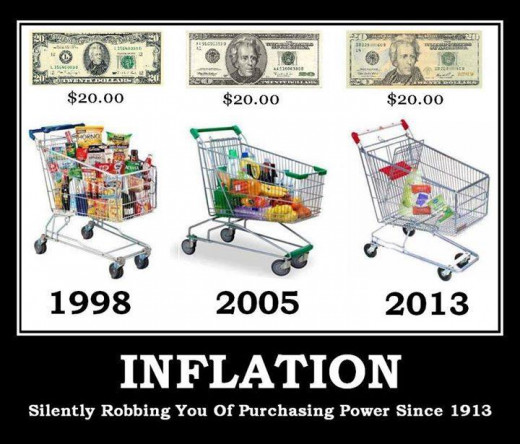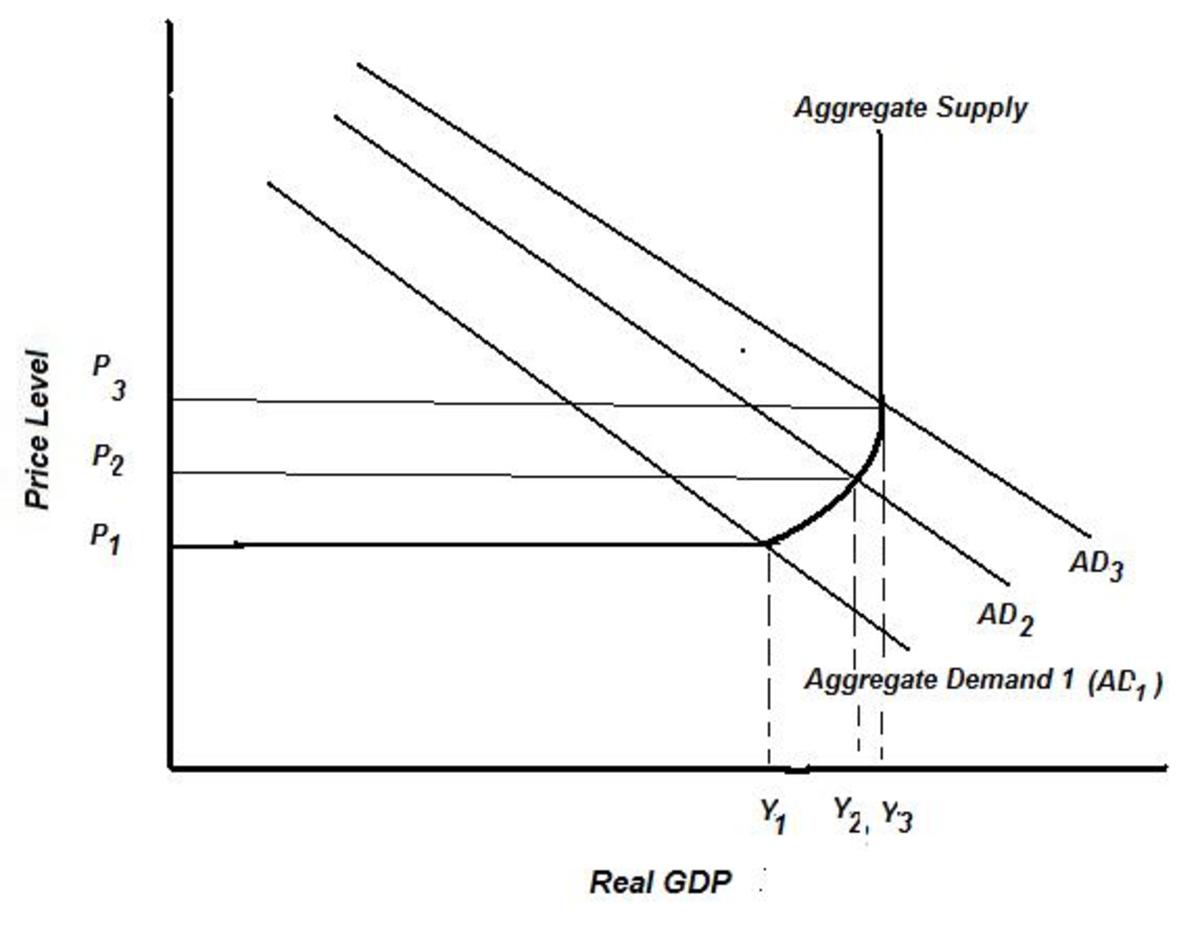What Is Deficit Spending?


When the government runs a budget deficit, the government is spending more money than it is taking in. As a result, the national savings and investment decreases. However, there are circumstances in which deficit spending is acceptable. For example, during the recession the government spent more money on benefits because of the fall in taxation. “More people become eligible for income supplements when income is falling, transfer payments reduce the effect of a change in real GDP on disposable personal income and thus help to insulate households from the impact of the change” (Rittenberg & Tregarthen, 2012, pg. 293). The government can correct the fall in taxation by increasing the rate of taxes. Increasing the rate of taxes will decrease the deficit, leading to more unemployment and lower growth. “If there is a negative multiplier effect this may cause the deficit to increase even more. Therefore, in a recession a deficit is necessary to increase ASD” (Economics, n.d., para. 1). Meaning, the government will have to spend more in taxes today and tomorrow it will have to tax more than it spends. This will affect every citizen of America.

The citizens of this country will have to adjust by limiting their spending and saving more. If the public limit their spending and save more, the effect of the budget deficit should have little effect on the economy. Each time a budget deficit occurs, the “government revenues exceed expenditures” (Rittenberg & Tregarthen, 2012, pg. 289). When the government revenue exceeds expenditures, money is added to the national debt which “is the sum of all past federal deficits, minus any surpluses” (Rittenberg & Tregarthen, 2012, pg. 290). As the national debt increases, so does the interest rate resulting in less capital. If the government uses the budget deficit to finance extra capital spending, it will lead to an increase in national assets. For example, an investment in education and health will lead to employment and labor productivity.


The disadvantages of deficit spending are rising costs and higher interest rates. For an individual, deficit spending will prohibit one from saving money for emergencies. If an individual’s credit cards have reached their limits, how will they afford to get their car fix? Deficit spending, at the organizational level, will make an organization appear to be unattractive to investors and lenders. On both an individual and organizational level, deficit spending will prohibit both from making investments. If an individual wanted to purchase or invest in a new house without having to pay a down payment, and a business wanted to upgrade its technology, how would they do so? Both would have to borrow money, adding to the national debt, which creates an excessive debt.


Crowding out is the “tendency for an expansionary fiscal policy to reduce other components of aggregate demand, whether it be an increase in government purchases, an increase in transfer payments, or a reduction in income taxes. Each of these policies increases the deficit and thus increases government borrowing” (Rittenberg & Tregarthen, 2012, pg. 299). Being that the government has a high credit rating, which makes it easy to secure loans, does not mean that they will be able to secure funds. Crowding out would put that government at a disadvantage, making it harder for them to secure loans. The next alternative, if the government is not able to secure a loan, is to print more money. However, increasing the money supply is not a good option because it can lead to inflation, slowing down economic growth.

The effects of deficit spending have more negative outcomes than positive ones. Deficit spending raises the future GDP and debt, which leads to a higher revenue. The government should be looking for ways to stop deficit spending such as terminating unneeded federal programs and creating balanced budgets.






